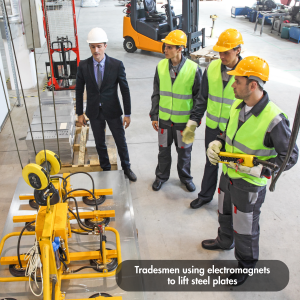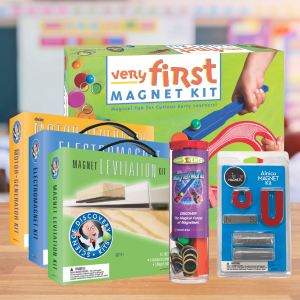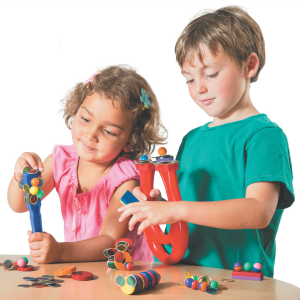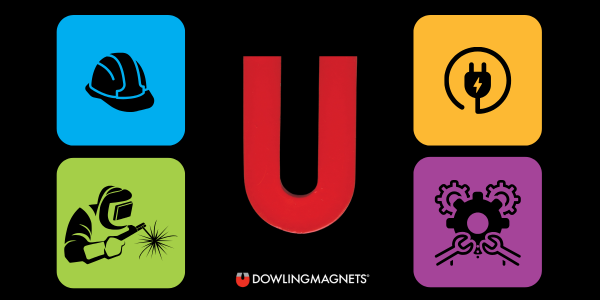From Play to Profession: How Magnets Inspire Future Tradespeople
This month (September) hosted National Tradesmen Day, and we’re giving a big shoutout to the electricians, mechanics, builders, welders, and so many other skilled workers that make our world go ‘round! These highly trained, hardworking pros are the ones who design, build, maintain, and repair the systems and structures we rely on every single day.
 In addition to being great with their hands, becoming a tradesperson requires lengthy training and a wide range of skills, including problem solving, attention to detail, technical literacy, and real-life math, among others.
In addition to being great with their hands, becoming a tradesperson requires lengthy training and a wide range of skills, including problem solving, attention to detail, technical literacy, and real-life math, among others.
Trades professionals must also be creative and innovative, finding solutions and workarounds to unexpected problems. And they must be able to communicate clearly and work well in a team!
Speaking of, behind every bridge, building, or power grid is a partnership between tradespeople and engineers. Engineers dream up the designs, and tradespeople bring those plans to life with hands-on know-how and precision. It’s teamwork at its best!
 Magnets are often important members of the team, as well:
Magnets are often important members of the team, as well:
- On construction sites, heavy-duty magnetic lifters move steel beams with ease.
- Welders use magnetic clamps to line up their work perfectly.
- Electricians rely on magnetism to power motors and generators.
- Even the small stuff—like magnetic stud finders, levels, and retrieval tools—keep a wide range of tradesmen safer and jobs running smoother.
Join us in celebrating the amazing collaboration between trades professionals and engineers—and the clever tools, like magnets, that help them build the world around us. Here’s to the problem solvers, the makers, and the doers who keep our communities strong!
 And here’s the exciting part: kids can start exploring the same forces and skills long before they enter a trade school or apprenticeship.
And here’s the exciting part: kids can start exploring the same forces and skills long before they enter a trade school or apprenticeship.
Simple “tools” 😉—like learning magnets, STEM kits, and magnetic accessories—introduce children to the wonders of magnetism at an early age, at home or school.
Through hands-on exploration and investigation, they build problem-solving skills, practice teamwork, and begin to see how invisible forces shape the world around them. Who knows?  That early spark of curiosity might inspire the next generation of electricians, welders, or machinists!
That early spark of curiosity might inspire the next generation of electricians, welders, or machinists!
A couple of fun facts:
The word “tradesman” comes from the Middles Ages meaning of “trade” which meant “skilled line of work”, so a tradesman (man meant person, ungendered) is someone engaged in a skilled manual profession.
The word “engineer” comes from the Latin ingeniare (“to create”) and ingenium (“cleverness”)—a perfect description of the ingenuity behind every innovation.
Tags: classroom magnet products , classroom magnets , Dowling Magnets , home school magnets , magnet experiments , magnetic classroom tools , magnetic products , magnetic teaching tools , Magnetic toys and games , magnets , magnets for learning , Science Kits , science magnets , science with magnets , STEM
Share This:

